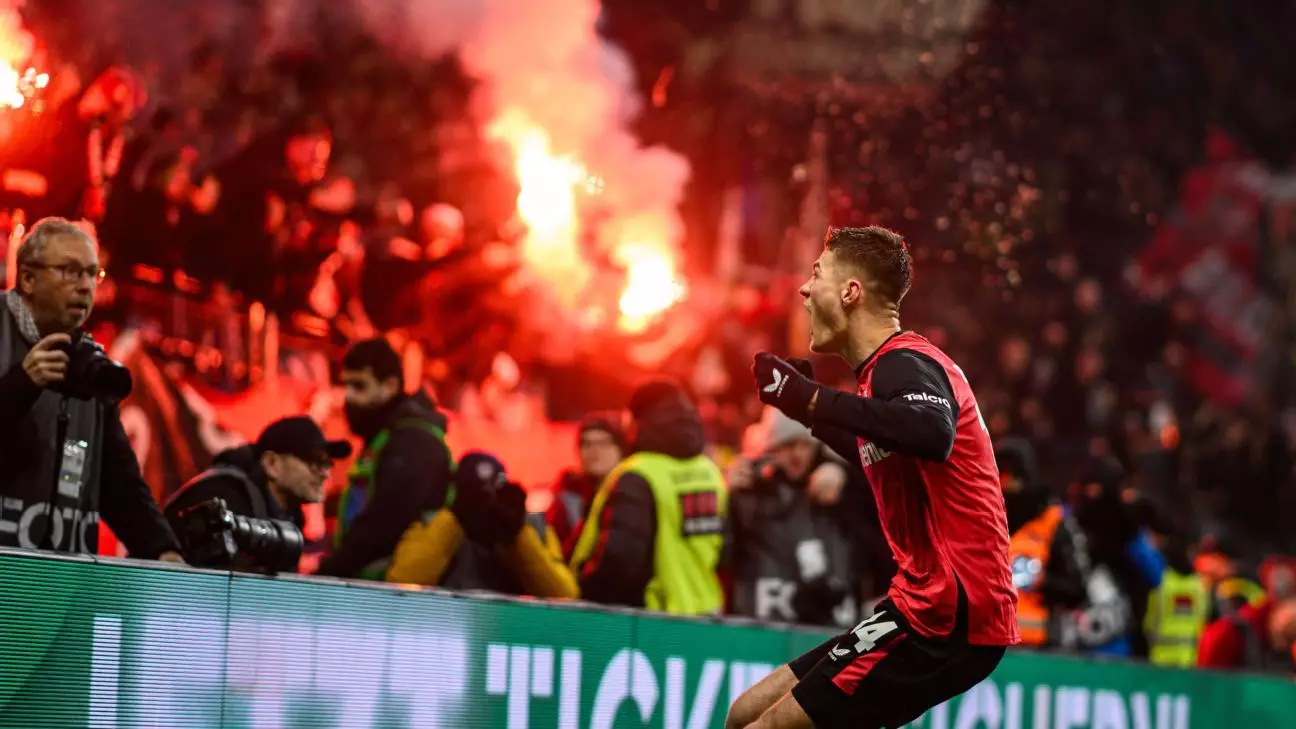In an era where many domestic cup competitions around the world are often dismissed as trivial or secondary to league campaigns, the DFB-Pokal stands out as an exemplar of what a national cup should embody. German football has confidently maintained the integrity and excitement of its cup competition, and in doing so, it has cultivated a deep-rooted appreciation among fans. From the early rounds featuring lesser-known clubs to the final held in the historic Olympiastadion in Berlin, the DFB-Pokal enhances the football calendar and engages spectators like no other.
Beginning in August, the DFB-Pokal is a structured and systematic event, unlike many cup competitions that can feel haphazardly scheduled. The idea of hosting matches at the grounds of lesser-known clubs, like Teutonia Ottensen or SV Rödinghausen, adds to the charm. Fans of these small teams may not see their clubs in the limelight during the league seasons, but during the cup, these matches become highlights. This cyclical return to grassroots football in the earlier rounds provides a narrative-driven league-influenced experience, connecting fans of all tiers of the sport.
The progression throughout the tournament maintains high stakes and excitement, with each successive round capturing the dramatic flair unique to knockout football. The midweek fixtures leading up to the final in May are a consistent reminder that every game counts. Here, every match unfolds as a story to be cherished rather than an afterthought relegated to the background.
When discussing the DFB-Pokal, the competitive spirit cannot be overstated. The narrative often shifts when larger clubs confront lesser ones on the pitch, as they cannot underestimate their opponents. Take Bayer Leverkusen, for instance; their recent quarterfinal clash against FC Cologne demonstrated the depth and intensity this tournament fosters. Leverkusen’s coach, Xabi Alonso, chose to deploy one of his strongest lineups, a strategy that would be atypical in other football cultures where rotation and prioritizing league matches reign supreme.
The thrilling encounter climaxed with emotional highs and lows, culminating in a nail-biting finish that emphasized the unpredictable nature of cup competitions. Leverkusen’s dramatic last-minute equalizer took them into extra time, where the ebb and flow of the match kept audiences on the edge of their seats. The subsequent overturned goal for Cologne served as a reminder of how finely balanced these matches can be. In essence, the DFB-Pokal remains anything but predictable; it is fuelled by fervent emotions and rich narratives, which ensures it retains its status as a marquee event.
What makes the DFB-Pokal unique is not just the intensity but also the presence of seasoned clubs integrating their histories with modern-day aspirations. Teams like Borussia Monchengladbach and Eintracht Frankfurt, both steeped in tradition, exemplify the spirit of German football as they navigate the current season. Each match not only holds significance for league standings but resonates with historical legacies.
Monchengladbach’s transition from the Bökeldbergstadion to a more modern facility symbolizes the evolution of football culture without losing touch with its roots. Similarly, Eintracht Frankfurt sits as a contender for UEFA Champions League football, showcasing not just ambition but the continuous evolution and adaptation of traditional clubs in a hyper-competitive sports environment. The thrilling matches are a testament to the synergy between historical legacy and contemporary hustle, enriching the DFB-Pokal narrative.
Despite the noise from other football leagues, anyone not keeping an eye on the DFB-Pokal is missing a slice of German football that defines its soul. The blend of tradition, competitive spirit, and structural integrity culminates in a tournament that celebrates football in its rawest form. Thus, as fixtures roll out, commentators and fans alike gear up for the excitement that each round promises. Whether it’s a traditional rivalry or an unexpected underdog story, every match reflects the charm of the competition.
The DFB-Pokal is more than just a series of football matches; it is a vibrant celebration of German football’s rich history and dynamic present. With each passing year, it challenges the notion of what domestic cup competitions can achieve, ensuring its standing as one of the most thrilling events on the football calendar. With anticipation building for future matchups, fans around the world are reminded of the unique magic that unfolds when tradition meets competition on the grand stage of the DFB-Pokal.

